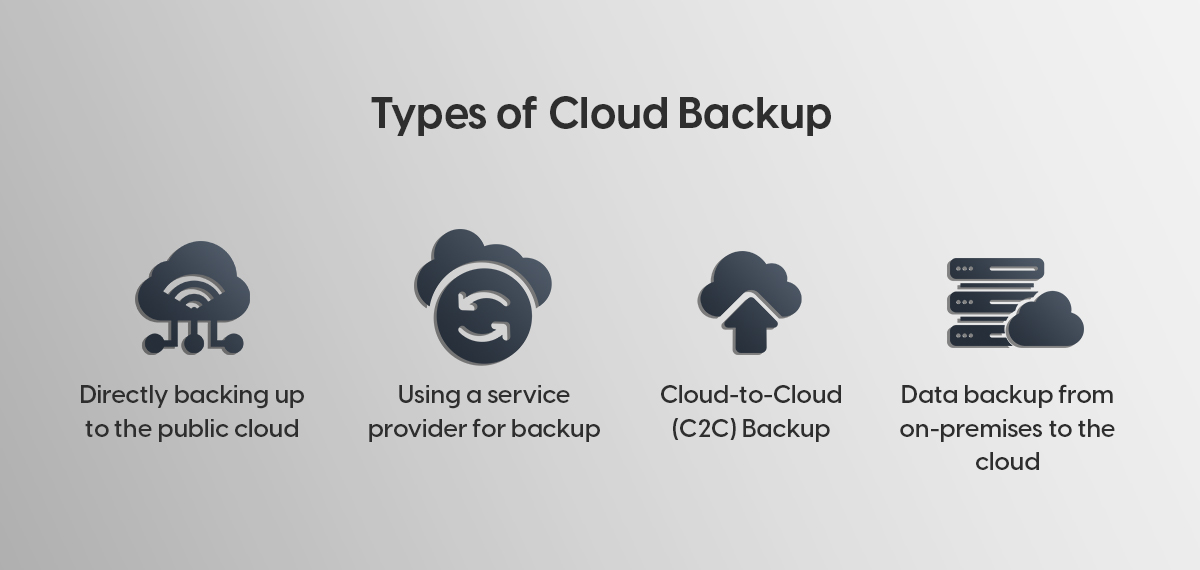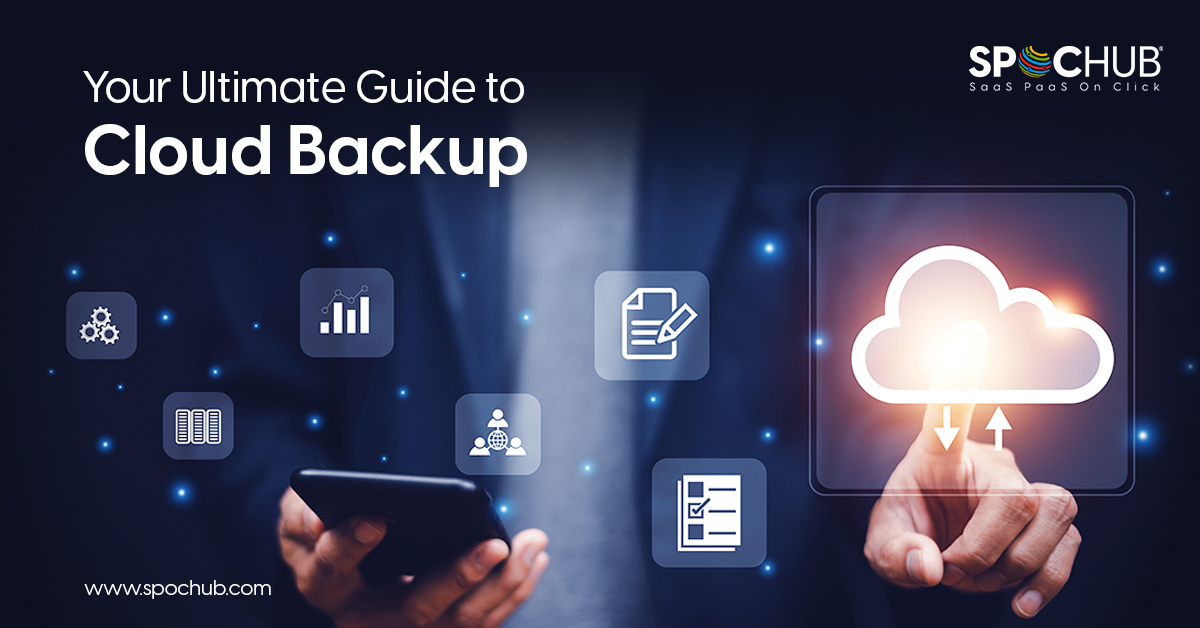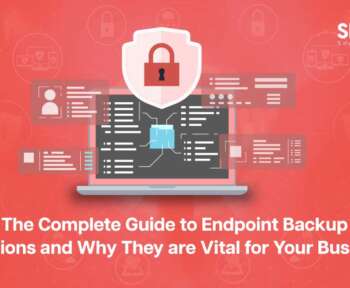Data is a vital resource for any business. Without it, companies won’t make as much profit as they should. Data backup is the act of storing data for later use in the event of a data loss event or an emergency. This is important because it’s not possible to predict when these events may occur, and companies need to be prepared for anything that could happen at any time.
In order to safeguard data from being lost, businesses should have a reliable solution in place that backs up their data onto the cloud regularly and automatically. A cloud backup solution can also be used in addition to an offline backup solution in order to prevent hacking and natural disaster risks too.
What are Cloud Backups?
A disaster recovery solution for businesses and home users alike, Data backup are a cost-effective way to protect your data and prevent data loss. With a cloud backup, all the data is automatically transferred to a remote server, which is then replicated on another remote server. This ensures the safety of your data, irrespective of what device you are using or the software you are using. Whatever device you use will automatically sync with the cloud servers and access your latest work. So, there’s no need to worry about losing anything at any point in time.
What are the types of Cloud Backup?

There are several options for backing up your data to the cloud. Here are the four main methods:
Back up to the public cloud:
One of the simple, easy, and cost-effective ways for data backup is utilizing public cloud services like ESDS Cloud Services, Amazon Web Services (AWS), Google Cloud Platform (GCP), and Microsoft Azure. Businesses are permitted by public cloud service providers to replicate data using backup software and upload it to the cloud. A cost-effective solution to store and access data is through public cloud services. These environments are more open to security risks than private clouds since they are made to be used by various tenants.
Backup to a service provider:
Choosing a cloud service provider that enables data storage in a managed data center is an additional technique of cloud backup. The seller offers backup software as part of the service in this approach.
Systems and appliances for cloud backup:
A number of hardware options make it possible to back up data to a cloud service. These appliances combine a backup application, disc space, and a backup server into one unit that performs many backup tasks. You can link most of these systems with one or more cloud backup providers.
Cloud-to-Cloud (C2C) backup:
The C2C backup method is intended to safeguard data that has already been stored in another cloud environment, such as Google Workspace and Microsoft 365. This technique, therefore, entails copying data from one cloud to another. The vendors in C2C backup supply the software that runs the backup procedures.
How do Cloud Backups work?
The Cloud backup process includes copying data from the production site to a remote storage system where it may be quickly retrieved for DR needs. Due to its great flexibility, simple setup, and on-demand scaling, cloud backup systems are popular among businesses for this use.
Here are the steps involved in Cloud backup:
- Choose a reliable provider for cloud backup solutions.
- Choose a plan that matches your business’s needs.
- Install the application, then customize it to your needs. For instance, how frequently you perform backups, define RTOs and RPOs, and so forth.
- Specify the apps, servers, files, and folders you want to backup.
- Schedule your backups.
- Following setup, the chosen files, and applications will be continually and automatically backed up offsite with little to no involvement from you.
In the event of a disaster, it would be simple and quick to recover the backed-up files and folders.
Also checkout web stories: – The Most Popular 8 Reasons to Choose SaaS Products Today
What are the Benefits of Cloud Backup?
Cloud backup solutions and services offer a perfect way to protect your data. It’s cheaper, faster, and more reliable than other traditional ways of backing up data.
Cost-effective:
In comparison to traditional on-site data storage solutions, cloud backup is often more cost-effective.This is because you only pay for the storage you need and don’t have to invest in expensive hardware or software.
Flexible:
With cloud backup, you can scale up or down your storage requirements as your business needs change.
Secure:
Data backups on the cloud are highly secure, with multiple layers of security.
Reliable:
Cloud backup systems are designed to keep your data safe by regularly backing up and implementing disaster recovery plans.
Why Should Companies Use Cloud Backups?
With these answers, you should have a better understanding of what cloud backup, recovery, and restoration is all about. Many businesses are now shifting to the cloud because of the dependability, cost savings, and ease of operation associated with cloud backup.
Utilization of existing infrastructure
Because cloud backup and recovery solutions use your existing corporate network, they don’t need to be purchased or installed.
Set it and forget it
Once you choose a backup plan, business data is automatically preserved, offering a clear answer.
Eliminate tape backups Limitations
Tape backups have several disadvantages that include their high cost, susceptibility to obsolescence, and risk of theft or loss when transferred offsite.
Improved recovery time objectives
By adopting a managed backup solution, your SLA will control the efficiency and dependability of your recovery and restoration.
Smarter IT Resource Usage
IT resources are used more wisely because a cloud backup and recovery solution enable your company to focus its IT resources on issues that are more urgent for the organization.
Backup Lifecycle Management
A cloud backup and recovery service balance the value of your data with the expense of securing it. The cost of securing your data decreases over time as its value rises, giving you further cost savings.
How to choose a Cloud backup service Provider?
Cloud backup services are crucial for your company since they provide services to protect your data in the event of a disruption. The majority of businesses choose to outsource to cloud backup service providers due to a lack of IT infrastructure. You must carefully select a service provider and take into account a number of variables that directly affect the services you will obtain.
Here are key aspects to consider when assessing cloud backup providers:
- Ensure the service you choose meets your recovery point objectives (RPOs) and recovery time objectives (RTOs).
- The service should provide encryption and credentials management. Backup data should be separated from the primary store by a logical “air gap” to prevent risks such as ransomware from affecting them.
- Examine the Cloud service provider’s backup dependability assurances and whether or not other services that can put your data at risk are located nearby.
- Moving data from on-premises locations to public cloud environments should be quick and easy with the backup service.
- If the cloud backup provider has managed backup features that enable users to automatically adopt retention policies and schedule backups as per organizational policies
- Make sure the cost aligns with your budget. In addition to additional fees for transferring data outside of the public cloud and varied prices for various storage tiers, cloud vendors frequently impose costs per gigabyte of capacity stored.
- Identify where the cloud service provider’s physical data center is located, as it may affect local users’ performance, compliance, and data sovereignty.
To Conclude
Cloud backup services are important for your business; they offer services to secure your data in case of any disturbance. Most companies lack IT infrastructure and choose to outsource to cloud backup service providers. Choosing a service provider wisely is crucial and you need to consider several factors that have a direct impact on the services you receive.
Looking for a reliable, scalable and cost-effective Cloud backup? Get in touch with us, and we’ll give you the finest option.


